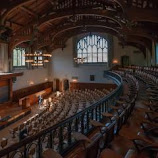
Over the years, I've told colleagues and friends about things I have seen or experienced. Many times, people have said that I should write them down so that they won't be lost and forgotten, since some of them might be useful parts of our history. I've been writing them down, without being sure what I would do with them. I decided to gradually post them on this website, and see what reactions I get. I suggest reading from the bottom up (starting with the August 2017 post "The Meritocracy"). Thoughtful and kind feedback would be useful for me, and would help me to revise the exposition to make it as useful as possible. I hope that while you read my stories you will ask yourself "What can I learn from this?" I'm particularly interested in knowing what you see as the point of the story, or what you take away from it. Please send feedback to asilverb@gmail.com. Thanks for taking the time to read and hopefully reflect on them!
I often run the stories past the people I mention, even when they are anonymized, to get their feedback and give them a chance to correct the record or ask for changes. When they tell me they're happy to be named, I sometimes do so. When I give letters as pseudonyms, there is no correlation between those letters and the names of the real people.
